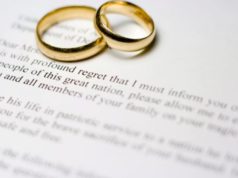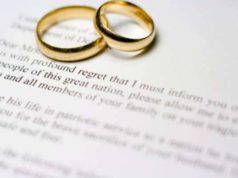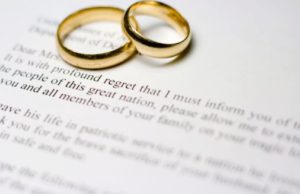
Advocating for Equality: Backers of Same-Sex Marriage Take Their Fight to Oregon in 2014
In the ongoing battle for LGBTQ+ rights, 2014 marked a pivotal year as advocates and supporters of same-sex marriage turned their attention to the state of Oregon. Driven by a commitment to equality and fueled by the momentum of legal victories in other parts of the United States, backers of same-sex marriage sought to challenge existing laws and bring about a significant shift in Oregon’s stance. This article explores the events and developments surrounding the fight for same-sex marriage in Oregon during 2014.
Background:
Historically, Oregon had a constitutional amendment that defined marriage as a union between one man and one woman, which was passed in 2004. However, the landscape of LGBTQ+ rights was evolving nationwide, with several states legalizing same-sex marriage and key court decisions challenging discriminatory laws.
1. National Context:
– In the years leading up to 2014, momentum was building for the recognition of same-sex marriage across the United States. Key legal battles, such as the overturning of the Defense of Marriage Act (DOMA) in 2013, set the stage for a broader conversation about equal rights for the LGBTQ+ community.
2. Legal Landscape in Oregon:
– Oregon’s legal framework, shaped by the 2004 constitutional amendment, prohibited same-sex marriage. However, a groundswell of support for LGBTQ+ rights was emerging within the state, prompting activists to challenge the existing laws.
The Fight for Equality:
1. Oregon United for Marriage Campaign:
– Advocacy groups, including Oregon United for Marriage, played a crucial role in mobilizing public support for same-sex marriage. The campaign focused on raising awareness, engaging communities, and highlighting the importance of equality under the law.
2. Legal Challenges:
– In October 2013, Oregon’s Attorney General Ellen Rosenblum announced that she would not defend the state’s ban on same-sex marriage in court. This decision paved the way for legal challenges, with supporters of marriage equality seizing the opportunity to challenge the constitutionality of the ban.
3. Federal Court Ruling (May 2014):
– On May 19, 2014, U.S. District Judge Michael McShane ruled that Oregon’s ban on same-sex marriage was unconstitutional. The decision came in response to a lawsuit filed by four same-sex couples challenging the state’s prohibition.
4. First Same-Sex Marriages:
– Following the federal court ruling, Oregon became the 18th state to legalize same-sex marriage. Couples flocked to county clerks’ offices to obtain marriage licenses, marking a historic moment in the fight for LGBTQ+ rights in the state.
Impact and Legacy:
The events of 2014 in Oregon had a lasting impact on the LGBTQ+ rights movement. The successful legal challenge and the subsequent legalization of same-sex marriage in the state contributed to the momentum for nationwide recognition of marriage equality.
Conclusion:
The fight for same-sex marriage in Oregon in 2014 was a testament to the dedication of activists, legal advocates, and the broader community committed to equality. The events of that year not only transformed Oregon’s legal landscape but also contributed to the evolving national narrative on LGBTQ+ rights. The fight in Oregon exemplifies the power of collective action and the resilience of those determined to secure equal rights for all individuals, regardless of their sexual orientation.
Supporters of gay marriage claim they will take their fight to Oregon’s 2014 ballot, establishing a high-profile political contest on the heated issue in a state that voted less than 10 years ago to constitutionally ban same-sex marriages.
Oregon’s most prominent gay-rights group, Basic Rights Oregon, announced the decision to launch a drive this week to gauge the interest of the proposal that would formally allow legal recognition of same-sex marriages. Given the organization’s manpower and vast resources, along with the issue’s high visibility, there is no doubt the group can at least qualify the measure for the November general election.
“People are coming to understand that marriage is special and unique, and you do not want to deny that right to anyone,” said Jeana Frazzini, the executive director of Basic Rights Oregon.
A spokeswoman for the Oregon Family Council stated that her group has been preparing for nearly one year to oppose any initiative that would seek for the legalization of gay marriage. Teresa Harke, in an interview with local media outlets, stated “We must communicate with voters why it is crucial to preserve marriage as being between one woman and one man.”
Frazzini’s team received a significant boost after voters in November approved similar same-sex measures in Maine, Maryland and Washington marking the first time voters formally said that lesbians and gays should be allowed to marry. Currently nine states and the District of Columbia recognize same-sex marriages.
The Basic Rights organization has been laying the foundation for a statewide vote since 2009. The group; however, decided not to bring the issue to ballot in 2012, with Frazzini citing a lack of consensuses on the issue to have a solid expectation of success.
That said, with last year’s historic victories and continued momentum in the polls toward increased acceptance of gay marriage, officials with the Basic rights group concluded that they could find success in 2014.
Recent public surveys on the issue found that nearly 55 percent of Oregon voters thought gay marriage should be legal. The same poll revealed that 40 percent were opposed to gay marriage, and the remaining 5 percent were unsure.
The advocacy group faces additional risks in 2014 because it is a non-presidential election year when turnout is considerably lower, and the electorate is less favorable to liberal causes.
The state of Oregon is one of 29 states that places a constitutional ban on gay. Depending on the results in 2014, Oregon may be the first state where the electorate jettisoned a ban they had set in place.

























